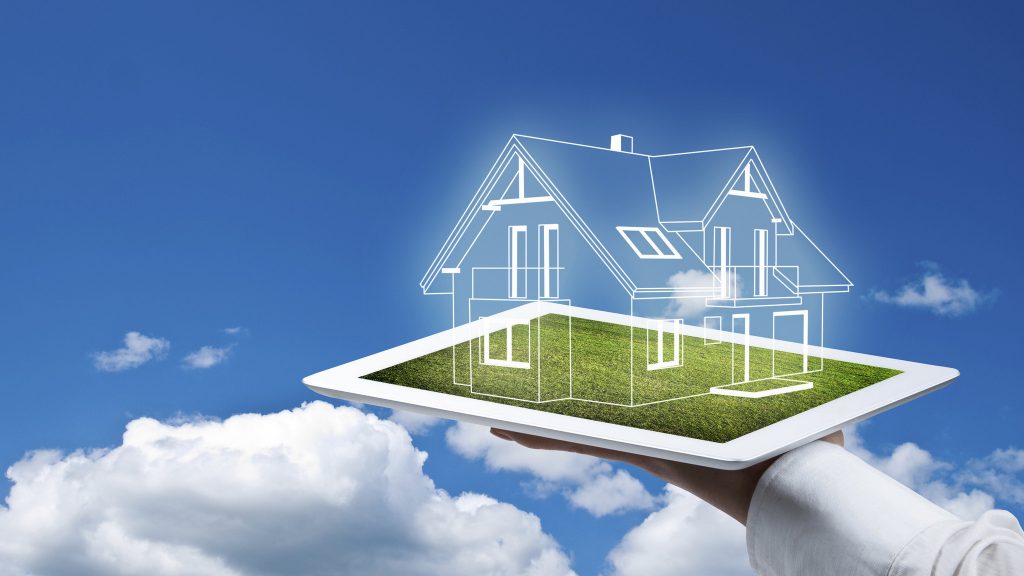The business of managing rental properties is often more than a full-time job. Between approving rental applications, addressing tenant requests, and providing maintenance for properties, property managers need to address several responsibilities at a time. If you consider the fact that this is all in addition to marketing new or vacant properties, it becomes clear that property managers stand to benefit from solutions that streamline one or more of these tasks.

Fortunately, new and existing technologies can help you address the various needs of your rental properties and add value to your home. Property managers with rentals across a large geographic area will benefit greatly, especially since most of these technologies allow you to interact remotely, freeing up travel time for other uses. Read on for a list of ways technology can help you improve your property management business:
Online Payments
Online payments benefit both tenant and property managers in a variety of ways. First, maintaining an online ledger of payments is useful for either party should a dispute arise later. If you are able to instantly produce a history of missing, late, or partial payments via an online ledger, there isn’t much question regarding the tenant’s payment history in an eviction case.
In addition, tenants are often much more reliable when they are able to pay online than if they were required to pay via check, money order, or cash. In order to ensure you will always receive rent payments on time, give your tenants the option to set up automatic payments. As an added bonus, you won’t need to spend time making trips to the bank to deposit tenant funds that may not always arrive on the same date.
Maintenance Management
When tenants request maintenance over the phone, it can be easy for some details to get lost in the shuffle, resulting in unnecessary services and expenses. Alternately, missing important details can result in problems going unaddressed, causing increased damages and unhappy tenants.
Property management software automates maintenance requests, allowing tenants to enter details regarding the problem, and property managers to record a response and schedule repairs. In addition, both tenant and landlord have a maintenance log, showing all the steps taken to address a maintenance issue. If a maintenance problem causes damages – which may lead to litigation – you’ll have a record of what you did to address the problem from start to finish, as well as the date you received notification of the problem.
Finally, online maintenance logs can provide a complete history of a property’s service record. If you need to determine the necessity of new appliances, the age of a fixture or roof, or find the date of the last service, you only need to access the maintenance log for answers. Previously, all logs may have been kept manually, or in an Excel sheet, but with newer property management applications, you can organize this data seamlessly.
Virtual Paperwork
There are a number of documents tenants must sign throughout the course of the application and tenancy. Paperwork such as rental applications, condition checklists, leases, lease extensions, and other documents are traditionally completed and signed in-person. Over the course of a lease period, this can add up to several hours on both the landlord and the tenant’s parts; over the course of multiple properties, the process can truly prove time consuming.
Digital versions of the same documents can be prepared easily via a number of property management suites and signed securely and digitally by the tenant in a matter of moments. Both property manager and tenant can choose to print a copy of all the necessary paperwork. However, storing digital documents in the cloud builds a property and tenant record, and allows access for all who need it.
Online Rental Listings and Remote Showings
Many property management companies choose to list their properties online. With apps like Zillow, Trulia, and more, property managers can provide photos, contact information, and other details at the click of a mouse. Potential renters can determine if a listing has the amenities they require before wasting time viewing a property that does not meet their needs. What’s more, you can schedule showings directly through the apps.
If you, like many property managers, have properties spread over a large area or are otherwise unable to meet with potential tenants, utilizing technologies like a Smart Lock makes it easy for you to allow access remotely. If the tenant is a no-show, you do not waste time; similarly, tenants needing to meet at odd hours no longer require you to travel to the property after hours for a showing.
These are only a few ways technology continues to improve the business of property management. Property management needs change every day, so oftentimes, smaller property management business owners find it beneficial to partner with a larger business with the necessary technology already in place.
Excellent tips! Some of these things are no longer optional. Younger tenants simply expect you to be able to collect rent online, manage maintenance requests via text messages, and manage documents electronically. It's definitely worth the time and money investment to improve your systems with these things.